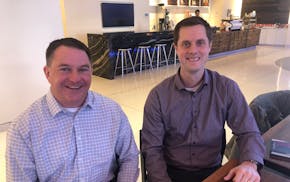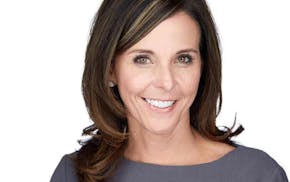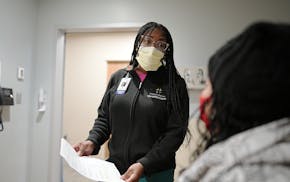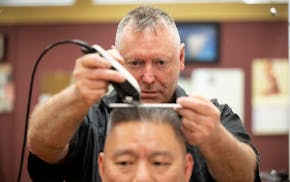David Edgerton Jr., a St. Paul small-business owner, is grateful for the Minnesota Young American Leaders Program.
Without the group's learn-and-collaborate seminar he attended in 2019, Edgerton said, he wouldn't have been inspired to quit a good job to start his own company, the DEJ Group.
Since 2019, the program — MYALP for short — has brought 35 rising leaders in business, nonprofits and government together for three days annually at the University of Minnesota. The participants focus specifically on inclusive economic development of their regions and on challenges and opportunities of common concern to generations across the state.
At the time he attended, Edgerton was director of diversity and inclusion at Andersen Corp., after several years in IT and engineering. During the 2019 seminar, about two-thirds of the participants were women and one-third were people of color, with many coming from companies that had a hard time finding candidates of color for management and executive jobs.
"This MYALP program gave us the platform, an opportunity to explore our passion for social justice, equity, resolving gaps and dealing with systemic racism,'' said Edgerton, who is Black. "We looked at the data presented and worked together with a diverse group that brought different perspectives and then synthesized solutions to those challenges.
"It gave me what I needed to start my own executive search firm."
After a quarter-century in corporate America, Edgerton, 48, now focuses on mentoring and working with organizations to develop more-diverse management teams. The Business Roundtable and other organizations say companies that build inclusive workforces and social responsibility tend to be above-average performers.
Edgerton still holds informal discussions with his team from the MYALP seminar. He credits them with helping to distill an approach that's working for him and his clients.
"There's an inclusive value chain," Edgerton said. "How do you capture value? And every aspect of that is inclusive. Including suppliers to your customer. That was a big takeaway. I also coach other entrepreneurs of color. That's part of the solution.''
About 145 participants have gone through MYALP's seminars since their creation. They hail from Duluth, Fargo-Moorhead, Mankato, the Twin Cities, Rochester and St. Cloud.
Veena Iyer, executive director of Immigrant Law Center of Minnesota, took part in the 2021 seminar and continues to work on a project to help increase the small percentage of K-12 teachers of color in the Twin Cities. She called the seminar a positive experience even though the summer cohort was virtual because of the pandemic.
The work continues
Iyer said she is "learning so much" from her MYALP peers. The group came from several types of organizations, as well as some business students.
"I am thrilled to see how our [project] shapes up because increasing the number of teachers of color will not only have a profound impact on the families that the Immigrant Law Center of Minnesota serves, but on my own children,'' Iyer said.
Lynette Dumalag, a senior vice president at commercial real estate firm Jones Lang LaSalle, went through the Harvard Young American Leadership program in 2016. Dumalag, also a St. Louis Park City Council member and active in homelessness solutions for years, also was involved in a MYALP cohort.
"Some of my fellow YALP colleagues have become some of my closest allies," Dumalag said. "It is through that lens of equity and shared prosperity that is a guiding value of Young American Leadership that I come across."
Lynn Casey, a retired Minneapolis and Itasca-MYALP volunteer, said the program cost of about $175,000 annually is economical, including lodging, food and travel. The expenses are picked up by the Itasca Project — a 70-member, business-led civic group that focuses on Twin Cities regional economic competitiveness and quality-of-life issues — and other corporate and foundation supporters.
Leaders at Itasca and several participating companies started the local consortium, with assistance of Harvard, because they thought it would be important to take a regional approach.
The Minnesota program is modeled after the original Harvard program. Harvard Business School research proves local cross-sector collaboration helps advance shared prosperity and overall economic growth.
"By bringing leaders with diverse backgrounds together early in their careers, giving them the opportunity to collaborate on a specific challenge their region faces and then encouraging them to continue to learn from each other, our region and state will build the social capital we need to solve the challenges we face," Casey said.
"Think of MYALP as a down payment on the opportunity to create an even better future for our region and state.''

St. Anthony: 'Patient' investing paying off for St. Paul's Hill Capital

Jennifer Smith, leader of Burnsville's Innovative Office Solutions, has died

St. Anthony: Medical professions in Minnesota need more people of color in their ranks


